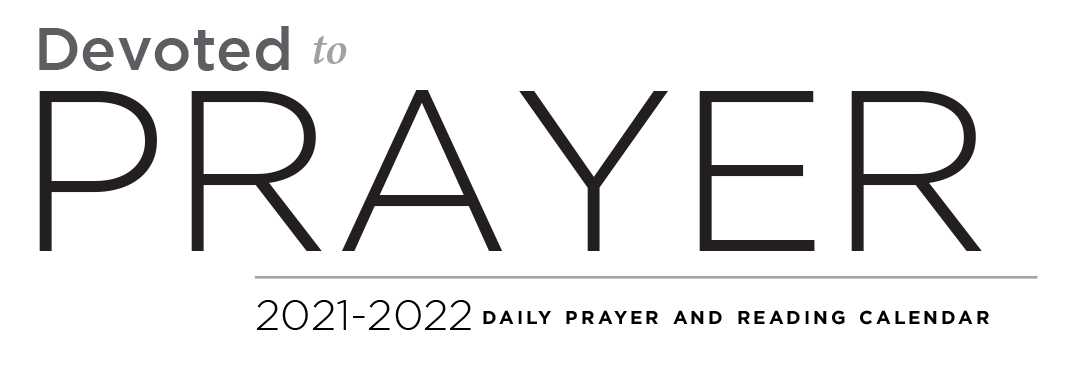
5:1 Run to and fro through the streets of Jerusalem, look and take note! Search her squares to see if you can find a man, one who does justice and seeks truth, that I may pardon her. 2 Though they say, “As the Lord lives,” yet they swear falsely … 4 Then I said, “These are only the poor; they have no sense; for they do not know the way of the Lord, the justice of their God. 5 I will go to the great and will speak to them, for they know the way of the Lord, the justice of their God.” … 9 Shall I not punish them for these things? declares the Lord; and shall I not avenge myself on a nation such as this?
– Jeremiah 5:1-9
In chapter 5, we see Jeremiah’s dramatic and vain search to find a righteous person in Jerusalem. In a similar manner to the Lord’s agreement with Abraham in Genesis 18:22-23, here He offers to spare the city if a single upright person could be found there — just one. However, in Abraham’s story with Sodom, it is Abraham doing the pleading, and the agreed-upon number is 10 people. In this case, it is the Lord doing the offering — in order to prove to Jeremiah the hopeless moral condition of the city — and the number is only one person. Commentators have noted that this episode is a way of the Lord stating that Jerusalem must have been ten times more immoral in Jeremiah’s time than Sodom was in Abraham’s time, a sobering prospect to be sure.
And so, Jeremiah begins earnestly searching across the city: just one person is all he needed to find. Surely, he would find piety and integrity among the poor — those who live simply and humbly — so he goes to them first. Instead, he finds them faithless, and attributes this to their lack of education and formation in spiritual matters. Jeremiah then turns to the leaders, the “great ones.” They were certainly educated, knew the law, and had a sense of responsibility and devotion as leaders of God’s people. To his dismay, they too rebelled against the Lord. Just as Wednesday’s devotion discussed how Judah’s sin was worse than Israel’s, here the sin of the leaders who were educated and formed in the ways of the Lord (and therefore should know better), but still reject Him, are greater than the sin of the poor who never learned His ways. Jeremiah does not find the one he is looking for, and whether poor or great, judgment was inevitable for such a people. The lion, wolf, and leopard — references to either foreign nations or rulers — were coming as God’s instruments of judgment and punishment.
The Lord then asks, “How can I forgive [them]?” He then lists their ingratitude for all He has done for them. The two main transgressions, according to the Lord, are these: (1) the people give credit to false gods for God’s abundant provision for their needs (see Hos. 2:5, 8); as one interpreter notes, “Affluence often results in arrogant self-sufficiency and immoral conduct rather than in humble gratitude and submission”; and (2) the people are rife with sexual promiscuity, both in figurative (faithlessness to God) and literal (actual carnality among the people) ways; the reference to the men as “well-fed lusty horses” eager to commit adultery with other men’s wives is some of the strongest uses of language of gross carnality found in the Old Testament (see Ez. 23:29). It is no coincidence that God justifies His right to punish such a “nation” (גּוֹי/goy; a word usually reserved for the ungodly Gentile nations other than Israel).
In our Romans reading today, we are confronted with the reality that the Lord is showing to Jeremiah: “What then? Are we Jews any better off? No, not at all. For we have already charged that all, both Jews and Greeks, are under sin, as it is written: ‘None is righteous, no, not one; no one understands; no one seeks for God. All have turned aside; together they have become worthless; no one does good, not even one’” (Rom. 3:9-12). This is a hard word, but an honest confession that we constantly choose to believe in ourselves and our own benefits, and not the promises of the Lord. Even though He promises judgment, God also gives us a great promise: He has sent someone to bring His voice, His love, His light and His life (John 5:30-47).
Prayer: Almighty Father, reveal to us our unrighteousness, that we may confess our transgressions against You, seek after You, and receive Your promises. Amen.
Lenten Response: Just as the Lord lists His transgressions, contemplate how you, your community, your neighborhood, and perhaps even your nation, have sinned in these ways. Have you shown ingratitude towards the Lord’s provisions and blessings, perhaps even attributing them to someone or something else instead of in humble gratitude and submission. Have you had moments of faithlessness to God, putting your hope and trust in an idol? How have we collectively done these things as the Church? Confess these and cling to Jesus.
Devotion written by the Rev. Andrew Ames Fuller
Morning Psalms
Evening Psalms
There are no festivals or commemorations on this day.

This daily prayer and Bible reading guide, Devoted to Prayer (based on Acts 2:42), was conceived and prepared by the Rev. Andrew S. Ames Fuller, director of communications for the North American Lutheran Church (NALC). After a challenging year in the midst of the COVID-19 pandemic, we have been provided with a unique opportunity to revitalize the ancient practice of daily prayer and Scripture reading in our homes. While the Reading the Word of God three-year lectionary provided a much-needed and refreshing calendar for our congregations to engage in Scripture reading, this calendar includes a missing component of daily devotion: prayer. This guide is to provide the average layperson and pastor with the simple tools for sorting through the busyness of their lives and reclaiming an act of daily discipleship with their Lord. The daily readings follow the Lutheran Book of Worship two-year daily lectionary, which reflect the church calendar closely. The commemorations are adapted from Philip H. Pfatteicher’s New Book of Festivals and Commemorations, a proposed common calendar of the saints that builds from the Lutheran Book of Worship, but includes saints from many of those churches in ecumenical conversation with the NALC. The introductory portion is adapted from Christ Church (Plano)’s Pray Daily. Our hope is that this calendar and guide will provide new life for congregations learning and re-learning to pray in the midst of a difficult and changing world.
